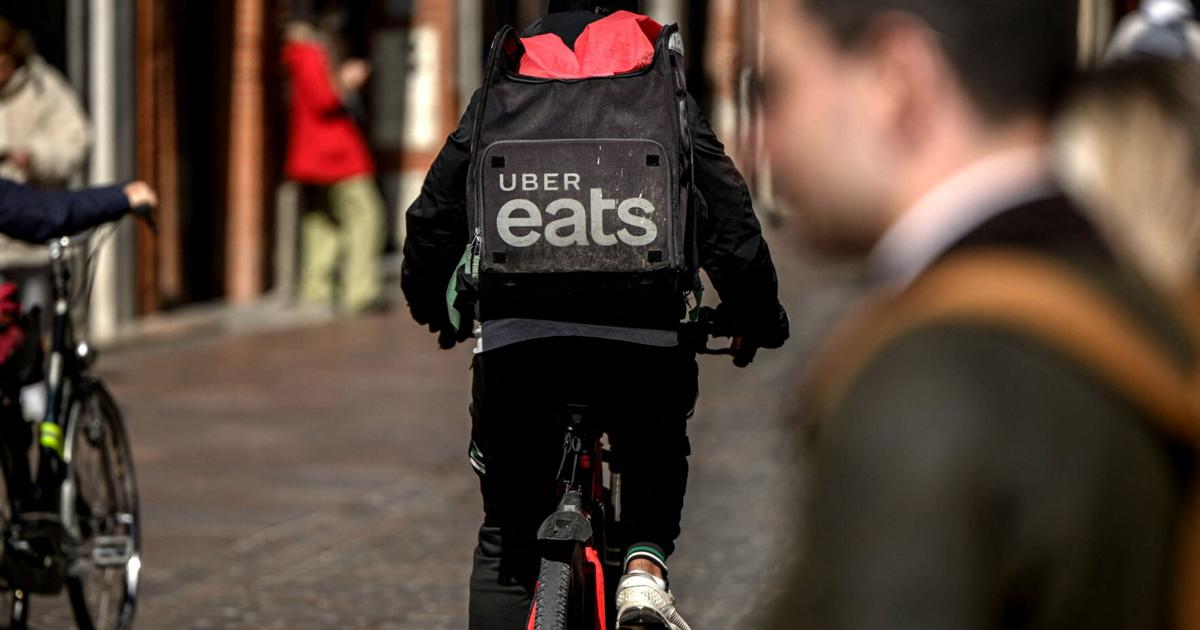Uber Eats has been charging customers hidden service fees, a proposed class action lawsuit alleges.
The statement of claim was filed in the Ontario Superior Court of Justice last month with Toronto-based law firm Koskie Minsky LLP as class counsel.
The lawsuit, directed against Uber Technologies, Inc., Uber Canada Inc., Uber Portier Canada Inc. and Uber Castor Canada Inc., accuses the food delivery company of drip pricing and “misrepresenting the true cost of its delivery services” by charging users a service fee — separate from applicable delivery fees — when they opt for delivery. Users are not charged the service fee for pickup orders, the lawsuit alleges.
Further, the service fee is only revealed at the final stage of checkout under a “taxes and other fees” line item.
Uber says it is reviewing the proposed suit and will be “defending the lawsuit.”
What is drip pricing?
Drip pricing, according to Competition Bureau Canada, is when the price you see is not the price you pay, the total cost of a good or service is not displayed upfront and unexpected additional charges are present.
“When companies offer low prices to attract consumers, but then add mandatory fees so that the advertised prices are not attainable, it affects their abilities to make informed decisions,” the competition bureau website says.
The lawsuit says this alleged practice misleads Canadian Uber Eats customers about the final cost of their delivery purchase, violating the Competition Act and the Ontario Consumer Protection Act.
During the “browsing stage,” the claim says customers are only informed of a delivery fee.
“By displaying a delivery fee that fails to include the service fee, the defendants made a false and misleading representation about the cost of delivery and the total price to be charged for a delivery order,” the document reads.
What about Uber One members?
The claim says service fees still apply to delivery orders for Uber One members, Uber’s paid subscription service, despite the subscription being advertised to save customers money, offering a $0 delivery fee.
This service fee, the court document states, is mandatory for all Uber Eats delivery orders and generally calculated as 10 per cent of the order’s subtotal, ranging between $2 to $4 depending on factors such as how large the order is.
When reviewing an order at checkout on the Uber Eats app, if a customer clicks on the “i” symbol next to “taxes and other fees,” it says the service fee “helps cover costs related to your order.”
According to the Uber Canada website, Uber One customers must make a purchase totalling $15 or more from eligible restaurants in order to receive free delivery and a five per cent discount, shown as a “membership benefit.”
The lawsuit accuses Uber Eats of breach of contract for those who paid for Uber One as the mandatory service fee, which it calls a delivery fee as it only applies to delivery orders, nullifies the advertised purpose of the subscription.
“Uber One Class Members do not, in fact, benefit from no delivery fees as they are still required to pay the Service Fee, which is an additional delivery fee,” the statement of claim reads.
What is Uber Eats’ response?
In a written statement to the Star, Uber Eats Canada declined to comment on details about the “ongoing legal proceedings” but added that the company is taking the allegations “seriously.”
“We are committed to transparency and fairness in our pricing practices,” the statement reads. “We are reviewing the claims thoroughly and will be defending the lawsuit.”
This comes as other food delivery services are facing accusations of deceiving customers with fees. Earlier this week, Canada’s competition watchdog sued DoorDash Inc. after alleging that an investigation found the service’s users could not purchase food and other items at the prices advertised on DoorDash’s websites and mobile apps because of mandatory fees added at checkout, hiking the total cost of their purchase.
In 2021, another class action lawsuit was filed against Uber Eats in Quebec, stating that consumers paid excess service fees on their orders. It also claimed that when a consumer uses a promo code or offer, including the “two for one” deals, service fees were allegedly calculated according to the gross price of the cart, before the discount.
“The consumer is therefore paying a service fee on a supposedly free item, and therefore, a service fee higher than the anticipated rate of 10% of the advertised subtotal,” Lambert Avocats, class counsel in the case, said on its website. The action was settled in December 2024.
Who is included in the Uber Eats class action lawsuit?
The class action lawsuit is on behalf of all Canadian residents who on or after May 16, 2023, purchased a delivery order on Uber Eats and was charged a service fee. This also applies to Uber One members who subscribed to the service on or after May 16, 2023.
With files from The Canadian Press



